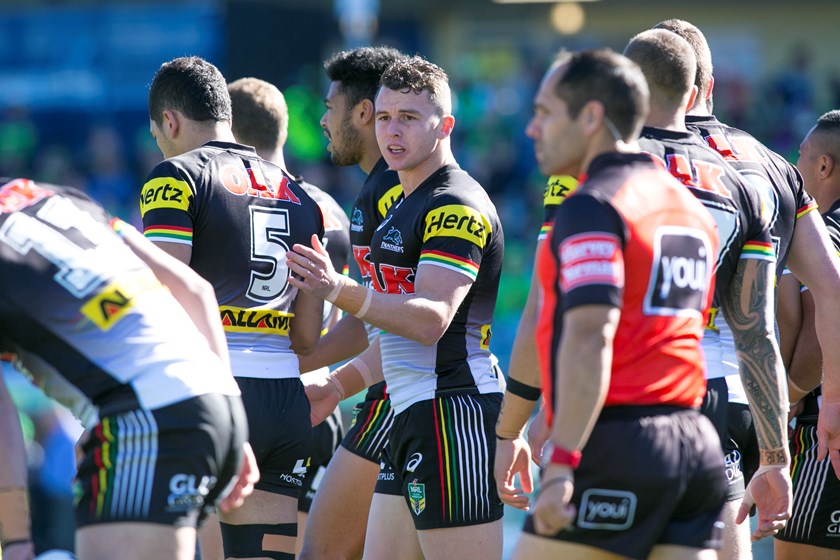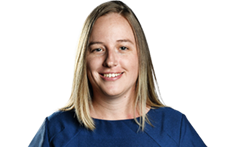
Housing the Panthers' next generation
Talk to Dylan Edwards and Corey Harawira-Naera about Panther House and they both immediately crack a cheeky smile.
Panther house – a renovated mansion purchased by the club in 2011 to provide rural and overseas players accommodation as they come through Penrith's junior systems – continues to operate under the guidance of former player Shane Elford.
Edwards and Harawira-Naera are the latest success stories to come out of the Cranebrook home. Four other players have gone on to make the grade in the NRL.
Elford took over the residence with wife Alanah in 2014 to help guide the club's developing players with everyday life.
From cooking and cleaning to study and rugby league, the Elfords have catered to more than 40 players in the past three seasons.
"We've had up to 13 [at one time] – our own team," Elford said.
"In the past we've had players at our own place in Penrith. We thought it was a nice fit and I sold it to [Alanah] as six players. Knowing my wife and how she operates – very organised – I thought she would be perfect for the role.
"She's the boss and without her doing what she does, we can't do what we do here.
"The young guys come into the house from anywhere between 16-18. We give them life skills, education and routine. They'll learn how to cook and clean. A year later they can move into a cottage on property when they get to 19-20."

So, what were and continue to be the rules?
"No girls and no alcohol. There were chores and some curfews. Even if you had mates over you would give them a warning," Harawira-Naera told NRL.com.
"We were lucky we could grow up that way. We never slackened off. Shane and Alanah were strict but it was a good thing for us.
"They helped us with everything. Just things like buying a car or doing rego, I'm hopeless with that. I wouldn't even know what to look for, terrible with cars. Spud (Shane Elford) would always help us out with that type of stuff."
Edwards agreed after leaving hometown Dorrigo in 2013 to join Penrith's SG Ball Cup squad.
"You've got a schedule of chores, all colour coded. Cleaning the pool area and vacuuming," he said.
"We had to put food on the shopping list or you don't get it. Mum drilled it into me all that stuff before I left home so I don't think I was too bad when I arrived.
"It was awesome, to room with all the boys. None of us were from Sydney so it enabled you to build friendships.
"I was 18 when I moved into Panther house. Spud and Alanah did heaps, they were awesome, like parents away from home. Spud is a bit strict but needs to be."
It's why Shane and Alanah looked on as proud parents when Harawira-Naera and Edwards received the joint award for Penrith's rookie of the year at the annual presentation night in October after breakout seasons.

"When I first moved to Australia we stayed at Fernhill and mum wasn't too impressed with those living conditions," Harawira-Naera said.
"But when she saw Panther House she was happy and got to meet Alanah as well. She calls Alanah my Aussie mum, always asking how the Aussie family is.
Panthers teammates James Fisher-Harris and Isaah Yeo were also residents of the house and Harawira-Naera believes Fisher-Harris wouldn't have settled in Australia without the housing facilities.
"I still go over there for dinner and catch up with the kids," Harawira-Naera said.
"They would never close the door on us if we needed anything."
Shane reflected on early memories of meeting Harawira-Naera and Edwards in their first year as hosts.
"Corey was fresh as from New Zealand – a very good kid," Elford said.
"If you ask Alanah he's her number one son and always will be. Dylan has absolutely busted his butt to get where he is now. He deserves everything.
"Everyone sees them as footballers but at the end of the day they are young men. They could come in with a rash on their hands or their car broken down. They might be missing home. There are so many issues outside of footy. We reassure them we're here.
"The common denominator is rugby league, they all want to make it but we're here for them as people. If we can make them off the field, they'll potentially be happy on the field."








